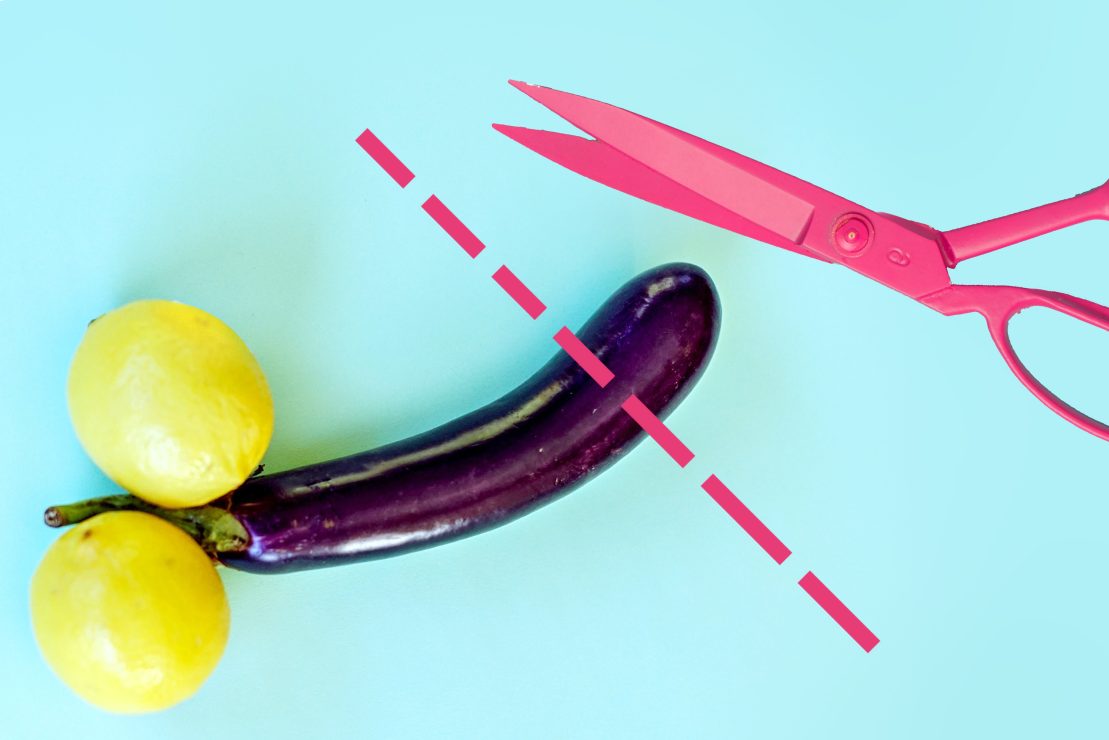It’s time we critically consider the pros and cons of cutting your foreskin off

Image by Dainis Graveris via Unsplash.
Growing up on Saltspring Island, I did not know a single person my age who was circumcised. It wasn’t until I got a bit older that I realized that this probably wasn’t the same experience for the majority of people.
I had always thought that being uncircumcised — uncut, intact; take your pick — was the norm, but it’s become clear to me that many people still view an unnecessary and potentially dangerous surgery on infants as completely normal. I found it confusing watching old episodes of Seinfeld where they would rag on how weird an uncircumcised penis looked. Isn’t that how it’s naturally supposed to look?
Approximately 31 per cent of Canadian newborns with penises are still being circumcised. But why? Not even six per cent of Canadians identify as following Judaism or Islam, the primary religions that promote and, in many cases, require circumcision.
And why is it still called circumcision? Is it because something like ‘penis cutting’ is too harsh sounding, although completely accurate? While it cannot be compared in any way, female circumcision is aptly named “genital mutilation.” This procedure, which at times removes the entire clitoral hood, is banned throughout most of the world.
Although it’s quite difficult to do accurate research on how pleasurable sex is for different people — as it is so subjective — I have no doubt in my mind that being intact increases how pleasurable sex is. The foreskin is one of the most sensitive parts of the penis, and cutting it off removes thousands of nerve endings.
Not only that, but the foreskin protects the head — or glans — of the penis, the other most sensitive part of the penis. The foreskin retracts during sex, exposing the glans fully, a pleasurable sensation in and of itself. Without the foreskin to protect the glans, it is left fully exposed at all times, possibly leading to it becoming slightly desensitized. Additionally, the foreskin acts as somewhat of a natural lubricant. To this day, I’m still not entirely sure how masturbation works or feels for circumcised people.
The prevalence of non-medical and non-religious circumcision in the West can be attributed to many things like racism, sexual repression, and yes, Corn Flakes. John Kellogg, the founder of Kellogg’s, had quite a few ridiculous beliefs, including his promotion of circumcision as a punishment for masturbation. Other doctors in the early 20th century believed that circumcision would help prevent young boys from pleasuring themselves.
I’ll admit that circumcision does make sense in certain situations. Living in a dusty or sandy climate with limited access to clean water? Definitely a smart move to try and limit the risk of infections associated with the foreskin. But we have showers, and if you can’t keep your penis clean, circumcised or not, then that’s entirely on you.
There are some reported medical benefits to circumcision, such as slightly reduced risks of UTIs and some STIs, but do they make the potential psychological damage worth it? If you think that infants don’t remember the pain of circumcision, think again. Research has shown that the pain felt during circumcision can alter the brain’s chemistry. This is not to mention the immediate risks that come from the procedure, possible complications, and the horror that is a botched circumcision.
Infants deserve bodily autonomy just like anyone else, and circumcision, which is considered a cosmetic surgery here in Canada, robs the child of theirs.
I’m not trying to say that everyone who is circumcised is worse off for it. But if you think that you might ever have a child in the future, I implore you to do some research before getting a doctor to cut the skin off your infant’s penis just to make it look like your own.







